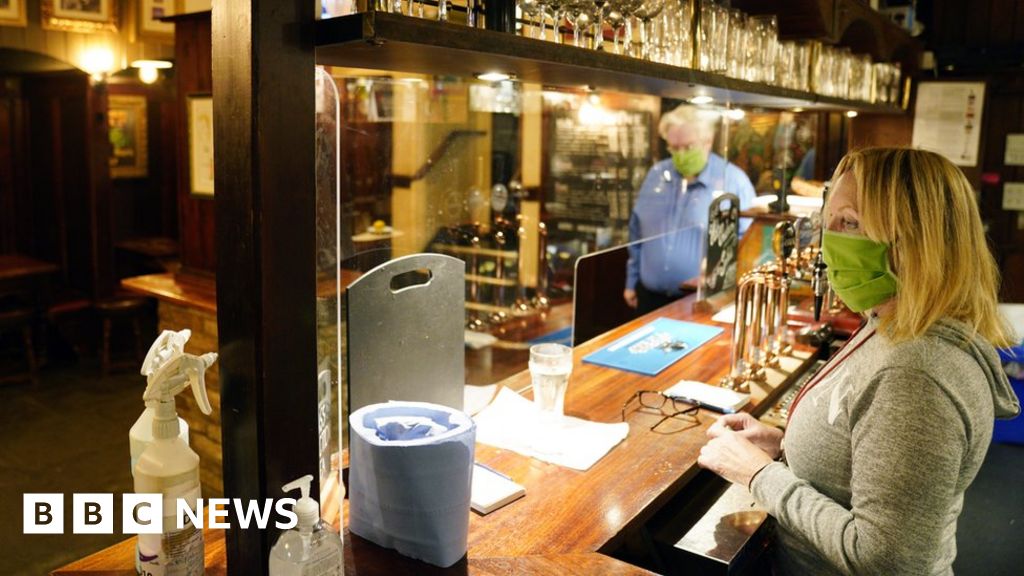 Image caption
One court case awarded home carers in London more than £100,000
Image caption
One court case awarded home carers in London more than £100,000
The government should guarantee that care workers are paid fairly, the UK's largest union has demanded.
Unison's statement comes on the heels of a legal victory it helped win for homecare workers in north London.
General secretary Dave Prentis said: "It's time the skills and experience of care staff were respected instead of them being underpaid and undervalued."
A government spokesperson said it was "clear" that care workers must be paid at least the national minimum wage.
Companies contracted by Haringey Council were found to have breached wage rules after some carers were paid less than £4 per hour.
A court awarded the carers more than £100,000 in backdated earnings following an employment tribunal ruling.
Care service companies, Kaamil Education Limited, Diligent Care Services Limited and Premier Carewaiting Limited say they inherited the case when they took over the work contract from care provider, Sevacare.
The court found that when the employees were working with Sevacare, they should have been paid for travel time spent moving between patient visits during their working day.
The firms who took over the contracts were ordered to pay the claimants.
When travel time was not paid, some carers worked up to 14 hours a day, but the average hourly pay recorded on their payslips was well below the legal minimum hourly rate.
The 10 claimants will receive an average settlement of £10,000 each, after a four-year legal battle.
The judgement said that travelling and waiting time of up to an hour between appointments should be compensated as working time.
Mr Prentis said: "This is a major victory for these dedicated workers who dared take on their employers.
"These are the very same care staff who were applauded during the lockdown. They shouldn't have to work in a system that breeds such awful treatment," he added.
'We work so hard'
Jess (not her real name) also heralded the victory as "great news and a big win".
She still works for one of the firms and told the BBC that the outcome offered every key worker a voice. She hopes that the precedent set by the union's case would help others like her.
However, she says that she still struggles on low wages.
"They were all clapping for us, but now it's all gone back to normal. And I think that is very bad. We work so hard," she says.
"It is difficult to make ends meet", Jess adds. Any unexpected expenses push her over the edge and it takes longer to recover financially.
A £4bn funding gap
Together with others who were fighting the court case, she had gone to Parliament to testify about their working conditions and was told she was doing a "fantastic job".
Jess says that politicians "only tell you what you want to hear".
She adds: "I've been here for ten years and it's not easy."
A Local Government Association spokesperson told the BBC: "We will consider this ruling carefully to assess any implications for local authorities".
They added: "Before the pandemic, adult social care services faced a funding gap of almost £4bn by 2025.
"Social care needs parity of esteem with the NHS, backed up by a genuine, long-term and sustainable funding settlement, which councils have been calling for long before the current crisis."
'Pay us proper wages'
More than one million people work in social care and the majority, 83% are female, according to figures from the Resolution Foundation.
A study the think tank did in April 2020 found that more than half of workers are paid less than the voluntary living wage and were five times more likely to be on a zero-hours contract.
Image copyright Getty Images Image caption The overwhelming majority of those working in social care are female, according to a think tankJess will remain in her job, but hopes things will change.
"Some of us, we can do more than key worker work, but we are doing it for a purpose. To give back. Some of my patients were key workers themselves."
She says it is time for the government to show care workers their support.
"Pay us some proper wages, so that we can feed our kids and pay our bills," says Jess.
A Department of Health and Social Care spokesperson said: "We are very clear that social care workers must be paid at least the national minimum wage, with those over 25 earning at least the national living wage, and they should be paid for the time spent caring for clients, travelling to appointments and waiting for them to start.
"We know there is a need for a long-term solution for social care and are looking at a range of proposals as part of our commitment to bringing forward a plan that puts the sector on a sustainable footing for the future."

 5 years ago
1118
5 years ago
1118 

